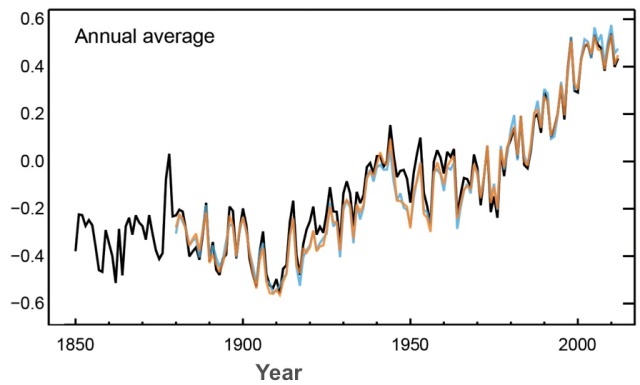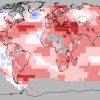IPCC Synthesis Report
Leadership, Innovation, Ingenuity, Diplomacy Fore-sight and Vision.
When is the last time you saw words like that in our daily headlines?
Simply the single-biggest policy issue facing us all.

The United Nations Intergovernmental Panel on Climate Change (IPCC) has released its synthesis report, a summary of its last three reports.
It warns greenhouse gas levels are at the highest they have been in 800,000 years, with recent increases mostly due to the burning of fossil fuels.
The three key points for policy makers: {my emphasis]
- Human influence on the climate system is clear, and recent anthropogenic emissions of greenhouse gases are the highest in history. Recent climate changes have had widespread impacts on human and natural systems.
- Warming of the climate system is unequivocal, and since the 1950s, many of the observed changes are unprecedented over decades to millennia. The atmosphere and ocean have warmed, the amounts of snow and ice have diminished, and sea level has risen.
- Anthropogenic greenhouse gas emissions have increased since the pre-industrial era, driven largely by economic and population growth, and are now higher than ever. This has led to atmospheric concentrations of carbon dioxide, methane and nitrous oxide that are unprecedented in at least the last 800,000 years. Their effects, together with those of other anthropogenic drivers, have been detected throughout the climate system and are extremely likely to have been the dominant cause of the observed warming since the mid-20th century.
The Synthesis Report confirms that climate change is being registered around the world and warming of the climate system is unequivocal. Since the 1950s many of the observed changes are unprecedented over decades to millennia. Thomas Stocker, Co-Chair of IPCC Working Group said:
“Our assessment finds that the atmosphere and oceans have warmed, the amount of snow and ice has diminished, sea level has risen and the concentration of carbon dioxide has increased to a level unprecedented in at least the last 800,000 years,”
The report expresses with greater certainty than in previous assessments the fact that emissions of greenhouse gases and other anthropogenic drivers have been the dominant cause of observed warming since the mid-20th century.
The Kicker….
3.2 Without additional mitigation efforts beyond those in place today, and even with adaptation, warming by the end of the 21st century will lead to high to very high risk of severe, widespread, and irreversible impacts globally (high confidence). Mitigation involves some level of co-benefits and of risks due to adverse side-effects, but these risks do not involve the same possibility of severe, widespread, and irreversible impacts as risks from climate change, increasing the benefits from near-term mitigation efforts.
Our policy/community response is?



